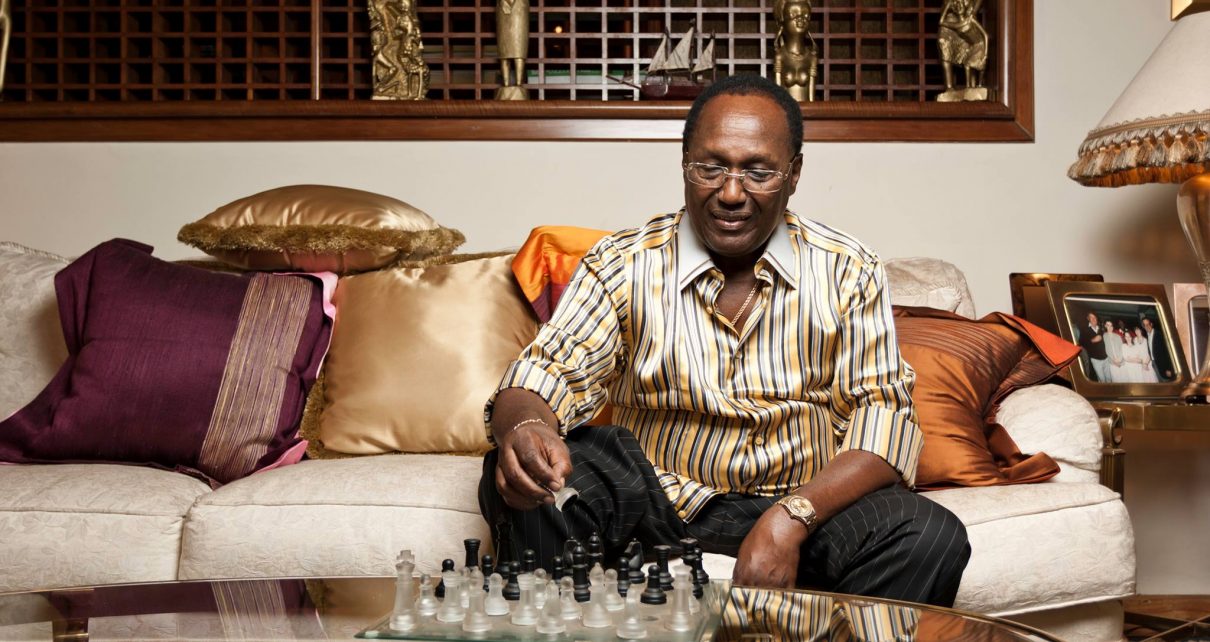No matter how much money you make, there will always be someone with more dough than you
By GW Ngari
Editor-at-Large
@UndercoverKe
You must have spent many sleepless nights wondering, scheming, planning, plotting, musing and dreaming how to become Mr Moneybags, a financial Kahuna.
The knack for making money though, manifests itself in various guises disguised as luck, timing, genius, ruthlessness, insight, as opportunism or stubbornness, but at the end of the day, the First Law of Millions states that “every millionaire creates wealth at somebody else’s expense.” But no matter how much money you make, there will always be someone with more than you. Even if you become Kenya’s richest, there will be America’s Jeff Bezos, the world’s richest dude to deal with. Have you, therefore, ever wondered what the loaded, those to whom cash is no problem, think about money? Here goes…
Rina Karina-Hicks, Operations Director and shareholder, Faida Investment Bank
Being wealthy is when you have sufficient money for two things; purpose and expenses. I’m not yet there, I’m still on the journey to create personal income streams that will be sufficient for those two things….
Success is lonely…you have a very small circle of friends
Benson Wairegi: Group Managing Director, Britam
Benson Wairegi earns Sh85 million in annual salary minus bonuses. His four percent stake at Britam is worth Sh715 million- part of his Sh3 billion of known investments at the Nairobi Securities Exchange. Wairegi stopped worrying about money “when the media started talking about Benson Wairegi the billionaire. I started asking myself, so what? What’s this? Money is just another commodity.”
Many seek success, but not many achieve it. They are thus oblivious to its hazards. For Wairegi, success is lonely since “you have a very small circle of friends because at this stage people do not want to engage with you too closely.” Why does he, at 67, still work? “Because work gives you dignity.”
I am not obsessed with money as such… I’m not yet successful
Chris Kirubi: Billionaire industrialist
Chris Kirubi is worth around Sh30 billion, according to Forbes, but said “I never set out to make lots of money. I grew up poor. So I always dreamt from very early on that one day I’d make it. I believed in myself. I was disciplined. But I’m not yet successful. I have a dream. I still have more hills to climb….Jesus Christ followed a very narrow path. The narrow path has its own challenges, but as long as you believe in yourself, you win. I don’t follow crowds. I only believe in one person; Chris Kirubi.”
Money gets value when you share to lift somebody
Bharat Thakrar, billionaire CEO, WPP Scangroup
He earns Sh78 million annually besides his Sh1 billions stake in integrated communications giant, WPP Scangroup.
“For me, wealth is not something you hold on to. But it is good to have money so you can buy stuff you want and have a comfortable life. I’m not just dwelling on making money because the value of money is to be shared to lift everybody,” said Thakrar who preferred driving himself in small, old but well maintained cars.
“Look there’s a guy who used to carry my golf bag, Kamau. I paid for his daughter’s education from primary to university, she now works for us. I feel good about that. I pay for people’s education, medical expenses…In Hinduism, there are four areas whenever you give money, you do really good; education, medicine, food and giving your daughter in marriage.”
On his extravagances, Thakrar said, ‘I dress well. I spend a lot of money on clothes. If there is one thing I love doing is shopping for myself…shoes, clothes. I’m trying to stay in tune with what people are wearing.’
Everybody leaves their money behind…the more you make, the more you leave
Kariuki Ngari, CEO, Stanchart
Many Kenyans dream of hitting the Jackpot. They plan for money about to be made in a deal, a tender still ‘cooking’. But Ngari, whose predecessor earned Sh100 million in annual salary reckons “it’s not your money unless it’s in your account.”
Many Kenyans also worship money and would even con or kill for it. But Ngari says “one has to be careful about worshiping money. Use it to build yourself and people around you because you’ll leave it. Everybody leaves their money behind. The more you make, the more you leave in bank accounts, assets and people fights will start over it. Lastly, money shouldn’t make you what you shouldn’t be.”
It was easy to let go of my principles because the pursuit of money was more important than anything else
Nizar Juma, Chair, Jubilee Holdings
“When you are young you think money is success because we are judged by it and you fall into that track. But drug dealers also have money. Are they successful? Yes, they get to control a lot of power, but what kind of power? It brings us back to integrity. Money is important to be comfortable, but ask people who have it if they can hold their heads high if they think of how they made it? I started having different money conversations with myself at 46. I changed my perception of pursuing it for success,” says Juma, now 77.
On why he still works-he sits on 70 boards- despite financial success, Juma says “different things make different people tick. This (working) makes me tick.”
Some individuals are almost by disposition gluttonous
Dr Frank Njenga, psychiatrist
The eminent psychiatrist was asked whether he thought “greed, this need to grab, acquire and steal is a mental affliction, some sort of sickness?”
Dr Njenga piped that greed is both “individual and almost constitutional. Some individuals are almost by disposition gluttonous. Whether that’s because of how their parents brought them up, or whether it’s in their genes, I don’t know. But the one that bothers me is the greed that seems to be cultural. We have socialised ourselves into systems of acquisition that lack merit… we reward gluttons. We do not punish them for it. We elect them to Parliament. We make them leaders.”

